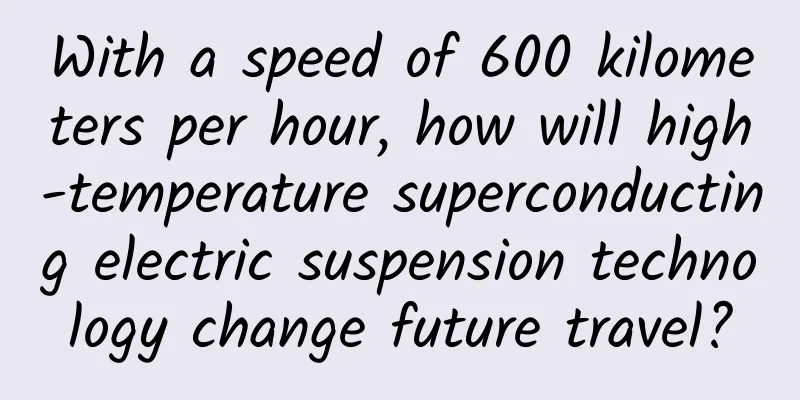The capital winter is still here, why is now still the best time to start a business?

|
"I've tried everything, but there's no hope." The Koala Shuttle, which was launched on March 11, 2015, ceased operations on its six-month "birthday" and was merged into Didi Bus. In the two months before the announcement of its death, Zhang Min, CEO of Kaola Shuttle, met with 30 to 40 investors. She believed that if she could raise 60 million yuan, she would still be able to compete with Didi. However, Didi Chuxing had just announced the launch of its shuttle business in July, and it was a capital winter, so no investor was willing to make the investment. Being "eaten up" by competitors, in Zhang Min's words, is the best outcome under the worst circumstances. Many startup teams cannot even hope for such an outcome, and are even more cruelly frozen to death in this "winter." "The first half of this year was crazy hot, and the second half was crazy cold." Even Lei Jun, who spans the investment and entrepreneurial circles, said at the GGV annual meeting that this year's market is a bit confusing, not to mention the army of entrepreneurs who have already fallen into the frenzy. The sensation caused by the death of Koala Shuttle at the time was just an outburst of grief over the death of the rabbit. This cold wave first appeared in June, and completely swept the entire venture capital circle in July and August when the stock market fluctuated violently. Some entrepreneurs who were used to the high temperature collapsed immediately, and those who did not collapse were also looking forward to a warming up. Investors from all walks of life have certain opinions on the frequently mentioned capital winter. The bad news is that it is too early to talk about capital recovery, and the earliest will have to wait until the middle of next year; the good news is that most investors said that the situation has not deteriorated further, and with the restart of IPOs and the Shanghai Emerging Strategic Board, although the overall environment has cooled down, it is still a golden period for entrepreneurship, and they have not given up looking for good projects. The temperature drops too fast As to whether the current investment situation has reached a cold winter, the investment community has different answers. Li Feng, founding partner of FreeS Fund, firmly believes that it has not reached a cold winter, while the founding managing partner of Matrix Partners China believes that a cold winter has arrived. As one of the earliest investors to warn of a capital winter, Bao Fan (Weibo) of Huaxing Capital believes that "the weather is not bad, it is not that cold." But no matter which school of thought, it cannot be denied that the temperature did drop rapidly. According to incomplete statistics from Tencent Technology, more than 20 food delivery projects have been closed, nearly ten community O2O projects have declared bankruptcy, and nearly 20 entrepreneurial projects in the automotive and travel fields have died. Food delivery, travel, automobiles, beauty, tourism, and education have become the hardest hit areas. In contrast to the deaths, the number of new investment projects and the total investment in the second half of the year have also been shrinking. According to statistics from Zero2IPO Group, the number of investment cases began to decline in July, but the amount continued to grow. By August, the number of cases decreased by 11.29% and the amount decreased by 63.58% month-on-month. In September, both the amount and number of investments rebounded. It is worth noting that the total investment amount in October was US$1.965 billion, which dropped sharply to only one-third of the total investment amount in September, and the number of cases also decreased by 35.59% month-on-month. This month also saw the first decline in both the total investment amount and the number of cases month-on-month (compared with the previous month) and year-on-year (compared with the same period last year). Many investors told Tencent Technology that the pace of investment in the entire industry has indeed slowed down in the second half of the year. The situation in the first half of the year where a round of financing was completed and the next round of financing was immediately launched, and the valuation doubled several times, has become much less common. Even if funds are raised, the valuation is probably greatly discounted. In addition to startups, the cooling of the market also brought a threat of death to new and small funds. The deterioration of the secondary market was transmitted very quickly to the RMB market. Even the FreeS Fund of star investor Li Feng, which received a very generous amount of commitment in the early stage of fundraising, lost half of its amount when the capital market fell. An investor who wishes to remain anonymous told Tencent Technology that as a new thing, most RMB funds are still in a chaotic stage. In particular, many funds’ LPs (investors) are listed companies. The volatility of the stock market has caused the market value of listed companies to shrink dramatically, and the fund raising completion rate has become very low. It has become more common for the money invested in companies to be defaulted on, and there are many companies that have been defaulted on. If you raise money but fail to get the money back, it is also the beginning of death. (Data source: Private Equity) This winter is not too cold? Although the cooling is an undeniable fact, Wang Yumei, managing director of Huatai Securities Research Institute, hopes to give entrepreneurs a different kind of "warmth" in terms of temperature. Like Li Feng, she is not a fan of cold winter. In her opinion, in the second quarter of this year, the market reached a high temperature of 80 degrees due to factors such as the massive influx of RMB capital. Now the temperature has dropped by half, which seems amazing, but in fact it has returned to 30 or 40 degrees, which is more suitable for survival. Not all temperature drops are equivalent to below zero. There are too many micro cases of death in the cold winter circulating in the market. But from a macro perspective, things are not as bad as imagined, and Wang Yumei's 30-40 degree view is not a consolation. GGV Managing Partner Tong Shihao told Tencent Technology, "Although the investment speed of most companies this year will slow down compared with last year, if we extend the time to a five-year period, it is still in a relatively active stage. There are still many newly established funds, and they are larger in scale. From the supply perspective, the amount of capital flowing into the venture capital field this year has not decreased significantly, and the trend of RMB investment migrating to TMT is still very obvious. From this perspective, funds are still abundant." According to the data from Private Equity Connect, in the third quarter of 2015, Chinese and foreign venture capital institutions raised 81 new funds, with an additional amount of capital available for investment in mainland China of US$6.512 billion. The average fundraising scale of a single fund reached US$90.4394 million. Although the activity level has declined, some large funds have increased the amount of funds raised. A total of 716 investment cases occurred, of which 620 transactions with disclosed amounts involved a total of US$6.014 billion, a slight decrease of only 0.7% from the previous month, and the average investment scale reached US$9.7007 million. Wei Shanwei, managing director of China Renaissance Capital and head of the domestic investment market, also emphasized that the overall environment has not deteriorated further. He believes that the cooling is actually the inevitable result of the relative balance between capital supply and demand, saying goodbye to oversupply and returning to rationality. Although there is less local tyrant capital and irrational capital, high-quality resources are beginning to tilt, which is a good thing for the operation of the entire market. “Winter may not be too cold,” but startup teams that cannot raise funds are still having a hard time. Some entrepreneurs even told Tencent Technology that their rent is due in three months, and the team is using this time to calculate the life span of the project. Their biggest hope at this time is that capital will pick up as soon as possible. In terms of the general view of investors, the answer is probably not very optimistic for this team. Although a number of investors including Bao Fan of Huaxing Capital, Zhang Ying of Matrix Partners China, Yang Ning of Lebo Capital, Zhang Ye of Qingshan Capital, and Ji Yue, partner of Sequoia Capital, all said that judging from the duration of the previous capital winter, this cooling will not last too long. But even the most optimistic estimate of the recovery time by Zhang Ye of Qingshan Capital is around May next year. Ji Yue only gave an estimate of next year. Yang Ning's view is that it will not exceed one and a half years, while Zhang Ying believes that the difficult period of financing may last for one and a half years, but the recovery will not exceed July 2017 at the latest. The good news is that IPOs have been restarted in November, and the Shanghai Emerging Strategic Board, which favors Internet companies, is expected to be launched next year. The superposition effect of China's secondary market has always been very fast, and the capital market has also been alternating between hot and cold very quickly. The most mainstream voice is that the turning point will appear next year. The next 12 months are the best time Although investment has generally become cautious, bottom fishing or waiting and watching are completely different attitudes. The latter means a blanket kill regardless of quality, while the former actually means that high-quality projects will have more opportunities. An investor in a US dollar fund told Tencent Technology that many US dollar funds are now waiting to see what happens, slowing down their investment pace, or even not investing for the time being. The poor performance of Chinese concept stocks and the return trend, the turmoil in the Chinese stock market, and the overvaluation of Chinese companies have all affected investment psychology. More importantly, the direction of the Chinese economy is uncertain. Since most US dollar funds are in the later stages, the recent wave of mergers is also related to this. However, the attitude of most investors is still optimistic, and they want to take advantage of the cooling of the market to acquire a number of truly good startups at low prices. After all, many unicorn companies were born in the capital winter from 2008 to 2009. Judging from the overall trend, Bao Fan believes that the current various innovations and new technologies, reflected in the improvement of productivity, will allow the golden age of entrepreneurship to continue for another 10 years without any major problems. Tong Shihao expressed his views more directly and clearly. He believes that the next 12 months are actually the best investment opportunities. At the same time, the more depressed the market is, the more competition there will be for high-quality projects. "When others are crazy, you should be more rational. When others are scared, you should be happier." However, bottom fishing does not mean buying a bunch of projects at low prices, but entering good projects at low prices. Projects that are not strong enough will face faster elimination, and the resource tilt effect will be more obvious. "If you buy bad projects at low prices, it will be useless no matter how low the price is. The death of a bunch of projects will cause greater damage to the fund, and it will be more difficult to raise funds." said Hou Jiyong (Weibo) of Fengyun Fund. Take Koala Shuttle as an example. Although the founder Zhang Min believes that the biggest reason for its demise is that it did not receive investment during the cold winter, some analysts believe that Koala Shuttle has the problem of over-reliance on capital, and its operating rhythm and cash flow are out of control; the team lacks experience, with more interns than professionals with transportation backgrounds; the business is slow to develop, and the route design is poor. The main reason is that investors judge that the chances of winning the competition are small. Lebo Capital founder Yang Ning admitted that when capital is hot, there are good and bad people. Big investments should be made when it is freezing cold. Entrepreneurs who want to take advantage of the wind will retreat when winter comes. Only those who are capable, really want to start a business, and whose companies are doing well are worth investing in. How should entrepreneurs deal with winter? Xu Xiaoping of Zhen Fund has a very representative view: "As long as your product is good, you are closest to the essence of business, you have customers and can make money, then even the coldest winter will pass. The capital winter has nothing to do with entrepreneurs. As long as you keep your head down and do your job well, capital will naturally come to you enthusiastically." |
<<: Some "pitfalls" and "solutions" for iOS game development and submission
>>: How to make guidance no longer useless and transparent?
Recommend
The current situation, advantages and disadvantages, and development trends of live streaming e-commerce!
Is live streaming sales a “temporary trend” or a ...
As 5G technology matures, can it help accelerate the implementation of blockchain?
2019 has become a hot spot for the development of...
How did the "Salt Yellow Fragrant Rice" with an output of 505 kg per mu in saline-alkali land come about?
On October 27, the Institute of Genetics and Biol...
Top 10 Marketing Observations in 2020: Integration of Advertising and Private Domain Traffic
A sudden epidemic in 2020 not only affected every...
How to use the KOLs at hand to make a good New Year’s greetings compilation? Share some tips
With the New Year being such a hot topic, every o...
Home appliance companies are also playing the sharing economy. How can Skyworth become a pioneer in the coordinated development of smart homes?
Although the road to popularization has not been ...
How does the Douyin beauty blogger account operate?
With the popularity of short videos, a group of b...
The cooperation with Huawei has been postponed again. Is Changan Automobile also caught in the question of "technology or soul"?
What is it like to work with Huawei? In 2021, Che...
Do you think plants don’t feel “pain” when you pick flowers and step on grass?
A news report said that scientists at Washington ...
Why can't your marketing drive user growth?
Starting from the analysis of the entire marketin...
Which is the best server rental company with high bandwidth? Large bandwidth rental brand?
5G has arrived quietly. 5G represents low latency...
Birthday wishes to an African friend. How did you make the video of a black person saying happy birthday?
The creative videos of African friends have becom...
The 3-year-old "Little Nezha" became the male protagonist of a 7 billion box office movie, but he was originally a burly man
Recently, "Nezha 2: The Devil Boy Conquers t...
Talking about the open Internet platform: "Decentralization" is the general trend
A few days ago, I talked with a friend about crow...
How can such a low-level product advertising creativity generate sales of over 100 million?
The product advertisement I share with you today ...









